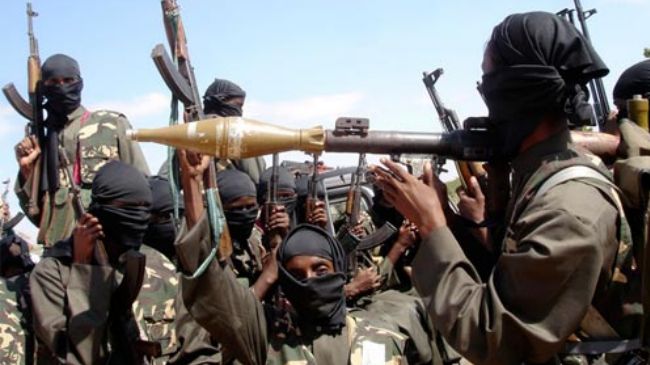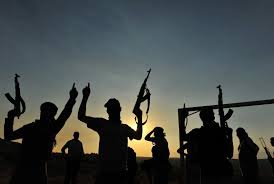By: Kavita Bapat
In recent years, Pakistan has faced an internal and external security dilemma concerning an asymmetric balance of power between the nation’s military complex and its government. The Pakistani army is by and large considered the most influential governing national institution and has been steadily increasing its power since the nation’s first military coup in 1958. The army maintains control over nearly all of the nation’s most critical foreign and security policy decisions, and since the 1980s it has extended its reach to domestic politics, rendering the Pakistani civilian government virtually insignificant. Pakistan’s Inter Service Intelligence Agency (ISI) and military feature predominantly in the higher echelons of the state, and there is little evidence that the civilian government retains any meaningful autonomy. At present, the ISI serves as a tool of the Pakistani military. While civilian governments have been given space to play in other sectors, their choices are generally made redundant by military preferences. The military also exercises exclusive control over its “legitimate structural missions” in India, Afghanistan, and Pakistan’s nuclear weapons program. Though the military has neither the capacity, nor the ability to entirely reset Pakistan’s state system, its intervention has become the unfortunate default option when the civilian government frequently falters.
Pakistan’s security services and military have steadily aggregated power and privilege in order to maintain their prerogatives as “guardians of the Pakistani state” regardless of the cost to Pakistan’s society at large. Pakistan’s security forces think of jihadists as their handmaidens and have shown an ever-increasing willingness to use them, believing the risks associated with this to be calculable and controllable. In particular, Pakistan’s relationship with the jihad groups is facilitated by the ISI (Inter-Services Intelligence), the nation’s main military agency. In fact, during the fall of 2006, a leaked report by the British Defence Ministry explicitly stated:“Indirectly Pakistan through the ISI has been supporting terrorism and extremism—whether in London on 7/7 (the July 2005 attacks on London’s transit system)or in Afghanistan and Iraq.” Additionally, in June of 2008, officials in Afghanistan charged Pakistan’s ISI of planning a failed assassination attempt on President Hamid Karzai and later accused the ISI of involvement in an attack on the Indian embassy, just one month later.
Though Pakistani officials have denied any connection to acts of terror, citing the state’s cooperation in the US-led battle against extremists, many US officials have themselves accused the ISI of continuing to support terrorist groups, including United States Defense Secretary, Robert Gates, citing the ISI’s intentions to preserve ties with insurgents in hopes of gaining power in Afghanistan once troops pull out of the region. Even greater evidence to support this argument surfaced in July 2010 when Wikileaks released US intelligence records on the war in Afghanistan which described the ISI’s links to terrorist organizations combating the Alliance forces in Afghanistan. Additionally, as recently as April 2011, the US Chairman of the Joint Chiefs of Staff, Admiral Mike Mullen, strongly suggested that there were ties between the ISI and the Haqqani network (a Pakistani militant group). Most recently, the death of Osama bin Laden in a military town, not far from Pakistan’s capital, has brought about new inquiries of the involvement of the ISI in helping and harbouring the former al-Qaeda leader, severely undermining the legitimacy of Pakistan’s counterterrorism efforts.
Experts also claim that Pakistan has long supported several of Kashmir’s militant groups that are also named by the US State Department’s Foreign Terrorist Organizations list. Additionally, it is thought that the relationship between the Pakistani military near the Indian border and some Kashmiri groups has changed radically since the rise of insurgency within Pakistan; in particular, it is clear that the ISI has lost control of all Kashmiri militant groups. However, even supporting these groups does not ensure Pakistan’s safety, as some militant groups trained by the ISI to promote and spread insurgency in Kashmir were found to have been involved in attacks and bombings within Pakistan. Thus, Pakistan must be wary of the implications of alleged support the ISI lends to the Taliban on Pakistan’s western border with Afghanistan.
It is clear that the ISI needs strict guidelines to follow and some sort of governing mechanism, as it regularly works beyond the government’s control and pursues its own foreign policy agenda. Former Pakistani Prime Minister, Benazir Bhutto even called the agency “a state within a state.” But it is worth remembering that the ISI does not function independently, it finds its power center in the higher echelons of the army, where the loyalties and interests of most ISI officials lie. Though constitutionally the ISI is accountable to the Prime Minister no PM has been able to exercise firm control over the intelligence agency. In 2008, the Pakistani government promised to bring the ISI under the jurisdiction of the interior ministry, but it revoked this decision within hours. Following this, there have been major changes to Pakistani security leadership; army chief, Ashfaq Parvez Kiyani replaced the ISI chief, appointed by former President Musharraf, with Lieutenant General Ahmed Shuja Pasha, who was a key organizer of military operations against insurgents in tribal areas. The shift in leadership signified Kiyani’s organization of control over the ISI by appointing his ally as head of the agency. To make matters worse, in 2008 the government disbanded the ISI’s political wing, which politicians say was the only thing keeping it under the same structure of governance as domestic politics. This move by the army faced much criticism. Contrary to the Musharraf years, this saw the military and all its agencies officially divorcing themselves from politics and civil society. The shift in policy also saw Pakistan’s tribal areas along its Afghan-Pak border emerge as safe havens for terrorists. Due to ISI links with the Taliban and its associated militant groups, the agency has some sway in the region, but with the growth of as yet unidentified armed groups in the tribal areas, it is difficult to determine which of these the agency controls.
Experts also state that the ISI, as an agency, has critical divides within it. While some members of the intelligence organization are sympathetic to the desires and demands of surrounding militant groups, others appreciate the fact that following a policy contradictory to that of the army and the state is nonsensical at best. However, to the state’s credit, it has arrested various al-Qaeda affiliates, including Khalid Sheikh Mohammed, the alleged brains behind the attacks of 9/11. The Pakistani military and ISI have also worked, without complaint, with the US to pursue any and all al-Qaeda kingpins in Afghanistan. In fact, it was in this vein that following the attacks of 9/11, Pakistan deployed 80,000 troops to its unstable province of Waziristan near the Afghan-Pak border. In an attempt to “break the al-Qaeda network’s back in Pakistan,” hundreds of Pakistani soldiers perished as a result of violent clashes with the insurgents. Yet, any celebration of the country’s efforts remains short-lived in light of the fact that, even post 9/11, former President Musharraf cracked down on terrorist groups only selectively and based on strategic intent.
Disclaimer: Any views or opinions expressed in this article are solely those of the author and do not necessarily represent those of the NATO Council of Canada.



